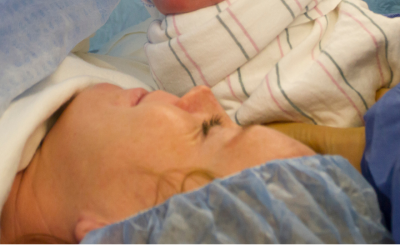
How do we measure preeclampsia research studies’ usefulness and trustworthiness?
Evidence-based healthcare comes from trustworthy research. Research is designed carefully, so that it can be repeated and tested by other scientists. Wrong information or bad data may waste clinical resources or even cause harm to patients.
Good news? The number of research studies about preeclampsia has rapidly grown over the years. More preeclampsia research is a positive outcome, but also creates a need for looking at how accurate and useful the data may be.
In this research study review, Dr. Wang and their colleagues looked at 202 randomized controlled trials (RCTs) from 1987 to 2021. A randomized controlled trial is a clinical study that randomly assigns participants to groups to evaluate the effectiveness of a treatment or intervention. RCTs are often considered the gold standard for clinical trials because they provide the most definitive evidence about the impact of a treatment. Large-scale RCTs often inform the creating of healthcare practice guidelines.
Researchers in this study measured how trustworthy, transparent, and useful the data was. Researchers found that even though there were more studies, the number of patients per RCT remained mostly the same.
The researchers studied three factors over time:
- Transparency - was the trial registered? Did the authors follow publication protocols? Did they explain funding sources? Did they document conflicts of interest? Was the trial able to be repeated?
- Trustworthy - did researchers use ethics reviews? What was the timeline of participant recruitment? What was the participant drop-out rate? Was a study retracted later?
- Usefulness - how significant were the studies' findings? Did they report an exact or inexact p-value? (P-values are a measurement tool where a value less than 0.05 suggests that a factor is significant.)
The researchers found that all three factors increased from the 1980s/1990s to the 2010s. A few factors suggest this, including:
- Many early double-blind studies did not publish trial protocols, making them unable to be repeated. This decreased many RCTs' transparency score.
- Trustworthiness measurements greatly improved after 2010. Proper study registration increased from 0% in 1987-91 to 53% in 2017-2021. Ethical approval rates increased from 20% in 1987-91 to 83% in 2017-2021. This suggest increased oversight over study recruitment and participant engagement.
- Researchers reported that in the RCTs, most inexact p-values (either "<0.05" or ">0.05") were considered to be "significant". Most exact p-values (a specific decimal value) were "non-significant." Research with significant findings are more likely to be published. This means that researchers in the RCTs may have been more likely to use inexact p-values.
- Changes in required RCT registration factors has overall improved transparency, trustworthiness, and usefulness.
Take home message: Trustworthy and transparent research is essential for evidence-based medical care. Published preeclampsia research studies increased from the 1980s to the early 2020s. There are still concerns with data reporting and the ability to repeat these studies, which is important for how these studies inform changes in healthcare practices. Increased oversight of ethics and trial registration improved public trustworthiness and transparency, but will need to continue into the future.
Transparency, trustworthiness and usefulness in pre-eclampsia randomised controlled trials in the last three decades
Citation: Hannah T Y Wang, Yichi Zhang, Rivani Porwal, James M. Kemper, Alston G.J. Ong, Ben W. Mol, Daniel L. Rolnik
Link: (https://doi.org/10.1016/j.preghy.2024.101181)
ABOUT RESEARCH ROUNDUP
Each quarter, our team of science writers reviews the most current research studies related to hypertensive disorders of pregnancy and summarizes those studies of greatest interest and potential impact to our community, including research studies related to risk assessment, diagnosis, prevention, and treatment. Special thanks to our volunteer research team, including Dr. Sig-Linda Jacobson, Dr. Jennifer Mitchell, Dr. Julie Reynolds, and Amanda Yang who make Research Roundup possible, and to our Patient Advisory Council, who reviews these materials from the patient perspective.
Related Articles

Your story is needed to improve outcomes for moms like you. Add your voice to critical preeclampsia research to ensure that every story is heard.

Frequently asked questions about the Preeclampsia Registry, a patient-driven registry and biobank.

The Preeclampsia Foundation offers research funding, study recruitment, and other patient engagement services to researchers.

We provide research grant funding to advance progress towards detection, prevention, or treatment of preeclampsia, HELLP syndrome, and other hypertensive disorders of pregnancy.

Recent findings in preeclampsia research have shown that preeclampsia likely has at least two variants – an early onset and a late onset variant. Early onset is typically defined as before 34 we...

Preeclampsia is a pregnancy complication marked by new-onset high blood pressure and signs of stress on organs such as the kidneys, liver, and brain. While much attention is often given to preterm dis...

Preeclampsia is a serious problem that can happen during pregnancy. It often affects the brain and can cause headaches, vision problems, strong reflexes, and seizures (called eclampsia). In this study...

Pregnancy offers a unique window into a woman’s future heart and cardiovascular health. Conditions such as hypertensive disorders of pregnancy (HDP) which include gestational hypertension, preec...

Heart disease, also called cardiovascular disease (CVD), is becoming more common in young women across the United States. Hypertensive disorders of pregnancy (HDP) is a group of conditions that includ...



